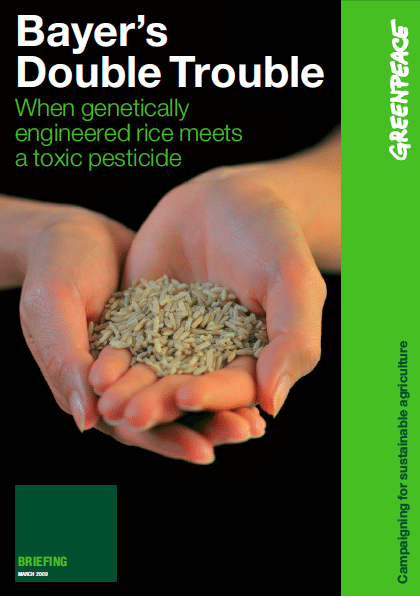
Promoting sustainable food
Food that’s good for people and the planet.
Where does your food come from?
Right now, most of us do not know where our food comes from. A greedy elite are industrializing, commodifying and controlling every aspect of our food system — from genome to grocery store. They’re growing our food on huge monoculture farms, spraying genetically modified crops with obscene amounts of chemicals and feeding these crops to factory-farmed animals.


The cost of greed
The result is a broken system: soils drained of nutrients, poisoned waterways and the destruction of a precious diversity of crop varieties that have enabled human societies to thrive from the mountains to the coast for millennia. At the other end of the food chain, urban consumers — especially the poor — have little choice but to buy pre-packaged food built devoid of nutrition.
Feeding the world’s growing population is no small challenge. But the false solutions pushed by big industrial farming corporations, GMOs and toxic pesticides, to name a few — come at steep costs for the environment and human health.
Did You Know?
- Six big agribusiness giants control nearly 70 percent of the world’s seed market, much of which has been genetically modified so they can reap profits on every seed they sell.
- Four global corporations control 75 percent of all global grain trade.
- The top 10 global food processing companies control 26 percent of global food markets.
- The livestock sector accounts for 14 percent of greenhouse gas emissions worldwide, roughly equivalent to emissions from the transportation sector.
Fixing Our Food System
A growing food movement is starting to form around the world. More people are demanding to know where their food is coming from. Farmers and communities are reclaiming control over the seeds of life and their right to self-determination through the food they grow and eat. A number of far-sighted corporations are looking to meet the evolving demands of the consumers they serve with a food system that matches this growing shift in consciousness.
We’re here to support the global food movement based on “ecological farming” — where most of our food is grown ecologically and farmers and consumers alike reject toxic pesticides, chemical fertilizers and genetically modified seeds. It’s a future in which people from all walks of life work together to build a system that is best for their families, farmers and for the planet.
But all need to act if we’re going to make a dent.
-

The ‘Big, Beautiful’ Blunder: a bill that will live in infamy
WASHINGTON, D.C. (July 1, 2025)—In response to the passage of the “Big Beautiful Bill” in the United States Senate, Greenpeace USA Deputy Climate Program Director, John Noël, said: “This is…
-

Wrecking the future: the Trump war on the ocean, climate, and communities
Wrecking the future: The Trump war on the ocean, climate, and communities. Dismantling climate and oceans protections.
-

This hurricane season Greenpeace USA helps deliver Uncle Sam’s disturbing message to America
Greenpeace USA deployed a banner at the Federal Emergency Management Agency (FEMA) headquarters to assist in making Uncle Sam’s message to the country crystal clear: this hurricane season, you are…
-

Smart Breeding
Genetically engineered crops are very limited in sophistication, being almost completely dominated by herbicide tolerance and insect resistance traits. Could the numerous tools of biotechnology deliver better outcomes? This report tries to answer that question. Genetic engineering has an inability to deal with complex (multi-genetic) traits (often the ones most useful, such as increased yield)…
-

Rice, Biodiversity & Nutrients
What happened to the rice landraces during the ‘Green Revolution’? There are few sectors in agriculture where the so-called Green Revolution had such an overwhelming impact as in rice production.
-

Food Security and Climate Change: The Answer is Biodiversity
Climate change will profoundly affect agriculture worldwide.


